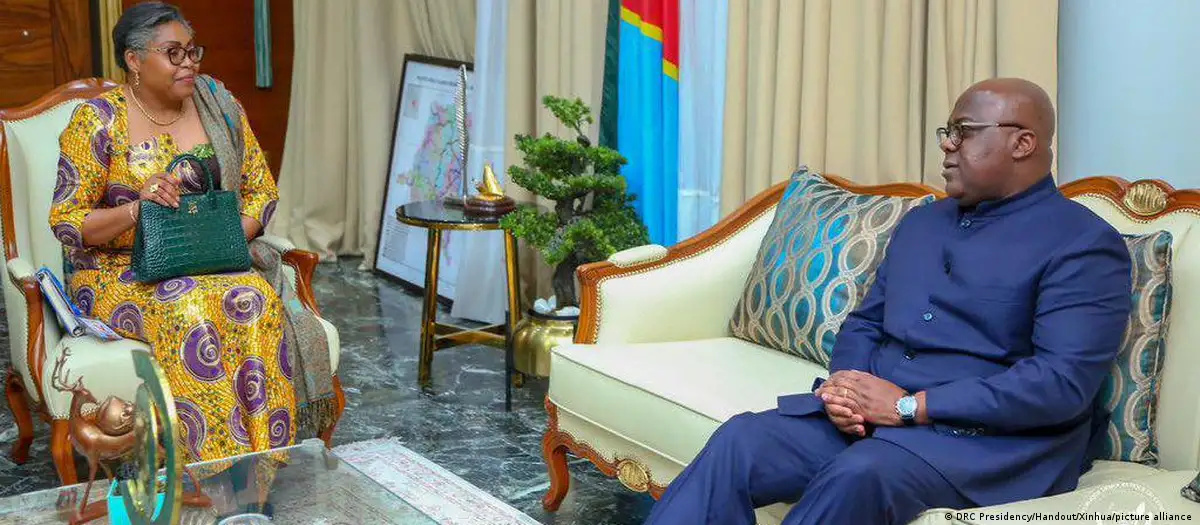Former planning minister Judith Suminwa Tuluka has been tapped as the next prime minister of Congo. She steps into the role at a time of worsening violence in eastern DRC.
The president of the Democratic Republic of Congo, Felix Tshisekedi, has appointed Judith Suminwa Tuluka as the next prime minister of the country.
A former planning minister, Tuluka steps into the new role at a time of worsening violence in the country’s mineral-rich east, which borders Rwanda.
Intense fighting between the Congolese army and the M23 rebels has exacerbated the security crisis there, with the long-running conflict having displaced more than 7 million people, according to the UN. It is one of the world’s worst humanitarian crises.
PM says challenges are not insurmountable in 1st speech
Tuluka delivered her first speech on national television on Monday, saying that the “task is big, the challenges are immense but together… we will get there.”
“I am aware of the great responsibility that is mine,” she added, saying she wanted to work “for peace and development” so that the “Congolese people can benefit from the resources” of the country.
By appointing Tuluka, President Felix Tshisekedi delivered on a campaign promise as well as made an important step toward the formation of a new government after being reelected late last year.
New PM to work toward peace and development
Tuluka’s appointment comes after weeks of uncertainty. It is still going to be months before a new government is formed since the process requires deliberations with several political parties.
Far from the nation’s capital, Kinshasa, eastern Congo has long been overrun by more than 120 armed groups seeking a share of the region’s gold and other resources as they carry out mass killings.
Both regional and UN peacekeepers have been asked to leave Congo after the government accused them of failing to resolve the conflict.
Tuluka promised to work towards peace and development, as well as on the number of promises made by the president on the campaign trail including better living conditions for people.
Source: Dw








